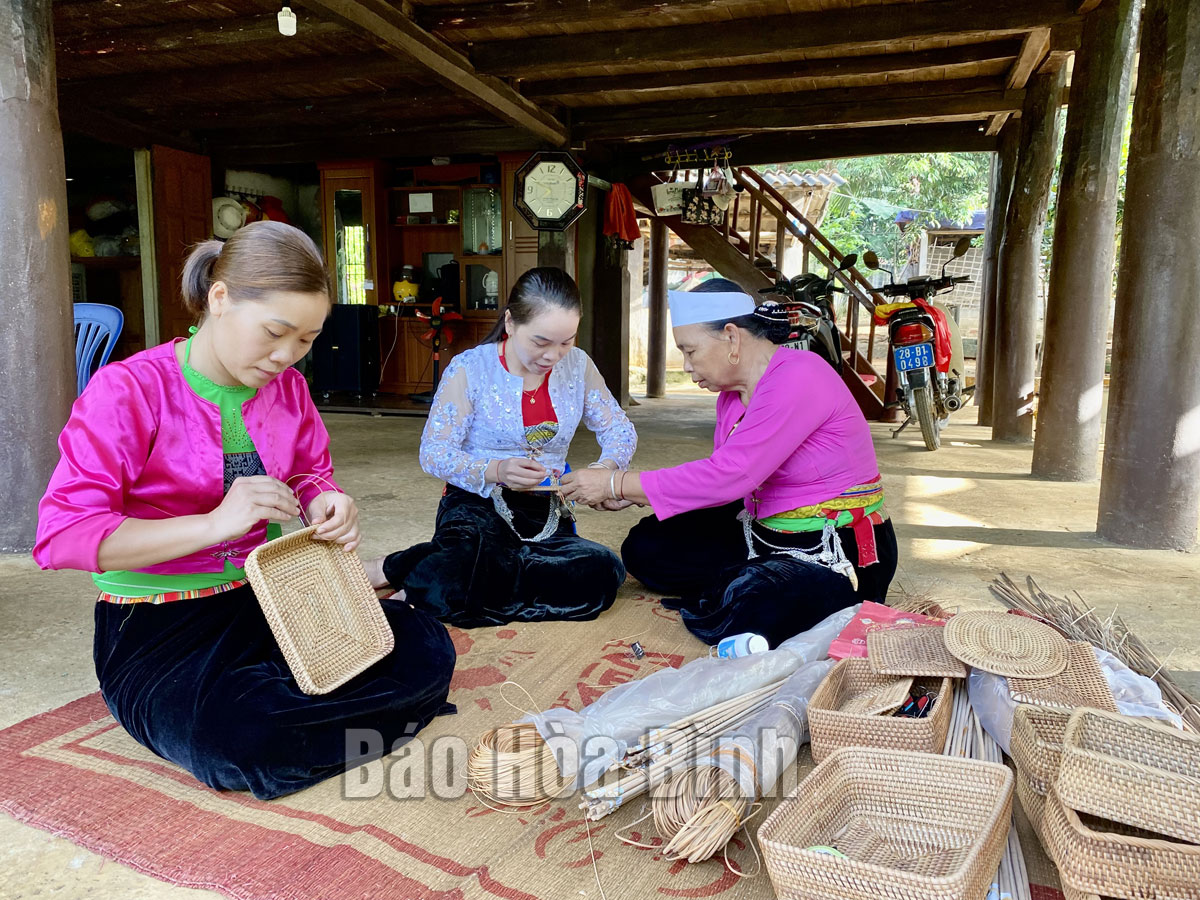(HBO) – Last year, the Party Committee, administration and people of Lac Son district in Hoa Binh province were honoured with a third-class Labour Order by President Nguyen Xuan Phuc in recognition for their efforts in the implementation of "All people unite to build the cultural life” movement in the 2000- 2020 period.
Women in Lac Son district’s Nhan Nghia commune preserve their cultural
identities and join in an emulation campiagn to improve labour productivity,
contributing to promoting the movement on building the cultural life.
Bui Van Linh, Chairman of the Lac Son District
People's Committee, said over the past 20 years, tasks relating to
socio-economic development, national defence and security in the locality have
been fulfilled thanks to the leadership of Party Committees and authorities at
all levels, effective coordination of the Fatherland Front and unions and the
determination of all people. This achievement has had a positive impact on mass
movements, especially the "All people unite to build the cultural life”
movement which has been associated with the new-style rural area building
programme, helping to improve the material and spiritual lives of local
residents as well as ensuring social security and order.
There have been effective models in which people
can help each other to boost economic development and reduce poverty through
mass organisations such as women’s unions, farmers and veterans associations.
With investment sourced from the central
government, localities and contributions from locals, many roads and canals
have been concretised. Between 2,000 and 2,500 jobs are generated every year
thanks to poverty alleviation projects such as Programme 135. The average income
per capital reached 50.1 million VND (2,120 USD) last year.
The "All people unite in building the cultural
life” movement has expanded in all villages and residential areas both in
quantity and quality.
In 2021, up to 89% of villages, hamlets and residential
areas were recognised as "cultural villages, hamlets and residential areas”
compared to 10% in 2000. Nearly 99% of agencies, units, enterprises and schools
achieved the "Cultural agency, unit and enterprise" title. The
"All people take exercise following the example of great Uncle Ho"
movement was also promoted at the same time.
The number of people playing sports or joining
in physical exercise regularly has reached over 45,000 people and 70 sports
clubs have been established.
People have observed the civilised lifestyle at
weddings, funerals and festivals. The district has restored nine traditional
festivals, meeting the people's aspirations.
The movement also contributes to promoting
socio-economic development, building and developing a culture that is imbued
with national identities as well as forming a progressive cultural lifestyle
while maintaining social security order. The number of households that achieve
the title of the cultural family is increasing, reaching 87% in 2021./.



